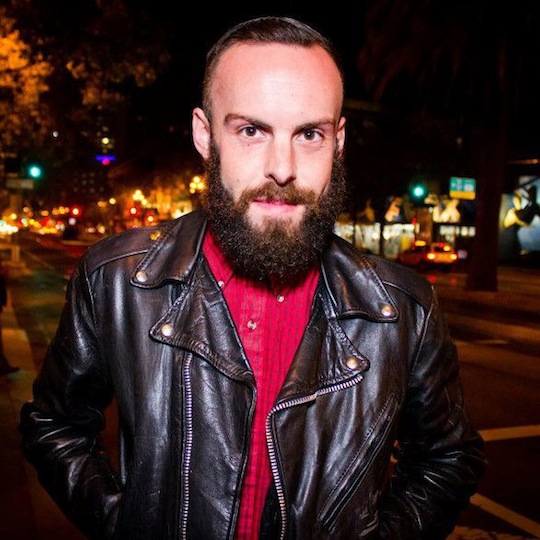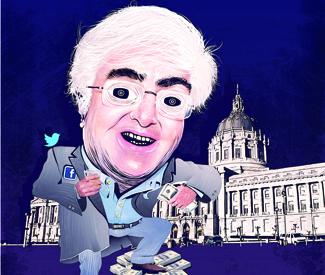If the soda tax proponents brought a supersoaker to the November ballot showdown, the soda industry brought a tsunami. New campaign finance reports filed today [Mon/6] show the soda industry gave $7.7 million dollars to shoot down the sugary beverage tax in San Francisco, and no, this does not count money spent in Berkeley against our sister city’s beverage tax.
That number is completely off the charts. In San Francisco local politics, journalists have written screeds against local tech angel investor Ron Conway for throwing $50,000 at an Assembly race, for a point of reference. It may not be record setting though. In 2008, PG&E spent nearly $10 million to take down a clean energy initiative, Proposition H. Still, $7.7 million is simply an absurd amount of money in terms of San Francisco politics, and rarely seen.
And the American Beverage Association still has the entire month of October to outspend PG&E.
“It makes your eyeballs pop,” said Sup. Scott Wiener, a co-author of San Francisco’s sugary beverage tax, along with Sup. Eric Mar. “The rule of thumb is, if you can raise $1 million in San Francisco, you’re in good shape. I don’t even know what you’d do with $7 million.”
The money spent also bests the record set in nearby Richmond. The failed beverage tax was defeated handily with $2.6 million spent against it. It’s that frightening amount that spurred Wiener and Mar to start a grassroots campaign for the sugary beverage tax a year early. The San Francisco measure, on this November’s ballot, would levy a 2-cents-per ounce tax on sugary drinks sold in containers. The money would go directly into health and wellness programs in schools and city recreation centers.
But the sugary beverage tax proponents have only raised about $225,000 so far, which is nowhere near the ballpark of the $7.7 million mark. San Francisco is awash in carbonated dollars.
Even more staggering is who the money is from. Most campaign finance forms show a long list of donors. Maybe a few firefighters kick in $500 here, maybe a retiree kicks in $100 there. This form has one, single campaign donor: the American Beverage Association, which is primarily funded by Pepsi Co. and Coca Cola.
What does all that money buy? Well, for starters, a whole lot of political ads. The expenditures listed against Proposition E, the soda tax, list over $3,750,000 spent with GCW Media Services, who make slick campaign ads like the one below.
It also goes toward paying those oh-so-pleasant mailed ads, you know, the ones trying to link the soda tax with the rising cost of living, and evictions? The US Postal Service alone netted $3,500 to send those off.
The Young Democrats, who endorsed No on the Sugary Beverage Tax, got a whopping $20,000 for their troubles. And notably, Chile Lindo, whose owner repeatedly came out to testify against the sugary beverage tax, was paid $812.
And let us not forget our friends at BMWL and Partners, paid over $161,000 by the American Beverage Association so far. No wonder Chuck Finnie, a flack at BMWL, got so testy with us when we questioned claims by the ABA.
“I was a journalist for 20 years, and this is bullshit,” the ex-San Francisco Chronicle investigative reporter told us. “The gloves are off.”
They certainly are. Big soda isn’t sparing a solitary dime when it comes to flooding our TV stations, our radio airwaves, our streets, and our billboards with a straightforward message: to vote against the sugary beverage tax.
But the real message behind that effort is much easier to see, now that we know how much money they’ve spent.
They’re scared.
Sugary beverages contribute much to obesity and diabetes rates in San Francisco and beyond, studies have shown, and the showdown with the soda industry in San Francisco and Berkeley could ripple across the country. Big soda’s big lobbyists are running astroturf campaigns we’ve exposed in previous coverage, and this $7.7 million show just how seriously the big soda companies consider these new taxes a threat to their livelihoods.
The only question is, will their big money succeed in hoodwinking San Francisco?
We’ve embedded the campaign filing below, which you can read for yourself or download.







